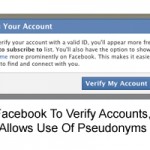
Just a week back since Motorola was awarded approval by the European competition authorities to be acquired by Google for $12.5 billion, its sister authority for antitrust matters has been asked by Apple to look into Motorola Mobility for abuse of its patent position.
With its latest salvo in the smartphone industry’s patent wars, Apple sent a letter to the European Commission accusing Motorola of violating a promise to license essential industry-standard patents on fair and reasonable terms.
By the way, the move follows after regulators on both sides of the Atlantic said they would step in to prevent companies from forcing out rivals when they license patents essential to ensuring different communications devices work together.
“On February 17, 2012, the company received a letter from the European Commission notifying it that the Commission has received a complaint against Motorola Mobility, Inc. by Apple, Inc. regarding the enforcement of MMI’s standards-essential patents against Apple allegedly in breach of MMI’s FRAND (fair and reasonable) commitments,” Motorola Mobility said in a regulatory filing on Friday.
“Apple’s complaint seeks the Commission’s intervention with respect to standards-essential patents,” it said. Jennifer Erickson, a Motorola Mobility spokeswoman, said the company is willing to negotiate a patent license with Apple.
The main objection is over Motorola’s “enforcements … of standards-essential patents against Apple allegedly in breach of its “fair, reasonable and non-discriminatory” FRAND commitments, according to the filing. The term known as FRAND, requires companies with patents to license them out under conditions which do not harm competition, or could be seen as extortionate or too expensive for rival firms.
“MMI has a long-standing practice of licensing our patents on fair, reasonable and non-discriminatory terms and we offered those to Apple,” Erickson said.
Apple and Motorola Mobility have filed lawsuit against each other in the U.S. and Europe over technology employed in smartphones, a market that researcher IDC said grew 55 percent last year. Motorola Mobility, which won a preliminary injunction against Apple in Germany in December last year, accused the iPhone maker of infringing its technology patents in a Florida court last month.
Last week Google obtained EU and U.S. approval to acquire Motorola Mobility for its portfolio of patents. The deal still needs sanction from regulators in China, Taiwan and Israel.
Both Apple and Microsoft Corp. have asserted that they would not seek any court order to block use of technology covered by industry-standard patents even as they pursue infringement claims over non-essential patents against Motorola Mobility.
Google said it would seek a royalty fee of no more than 2.25 percent of the net cost of devices using its patents, and would try to resolve any disputes through negotiation before asking courts to block use of the Motorola Mobility technology.
“We are aware of the increasingly strategic use of patents in the sector and are vigilant,” EU’s antitrust chief Joaquin Almunia said Feb. 13. “We can avoid a continuation of this patent war.”
The European Commission, which presides over competition matters across the 27-country European Union, is now investigating whether legal tactics used by Samsung Electronics Co Ltd against Apple breaches EU antitrust rules.


